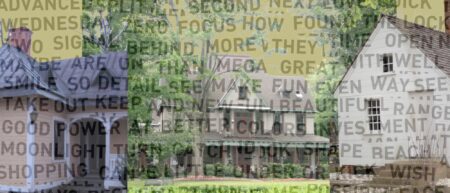TRUE editor, Dina Relles, asked several nonfiction writers about their working and writing lives. Below is a composite of their thoughtful, varied answers—a collage of glimpses into writers at work.
Where do you work, and how does the writing fit in?
Lauren Apfel: At the kitchen table, sometimes with the children flitting in and out, and sometimes in the quiet, when they are at school. I have no ‘office’ to speak of, no way to seal myself off from the rest of the house, which says everything right now about how my writing bleeds into my life—and how my life bleeds into my writing.
Amanda Magee: I own an advertising and communications agency called Trampoline. A significant portion of my work involves writing.
David Olimpio: I work at home and the writing fits in…sporadically, at best. I have two computers. One is a more powerful desktop machine with a large monitor. I use this one most of the time because for Atticus Review and for my own photography, I need the processing power and screen space to work on images.
The other computer is a laptop. In order to start a new piece, I often have to do that on the laptop in a different room in my house, away from the desktop machine. I like to lie on my stomach on the floor somewhere, a throwback to the way I used to do homework in high school and college. My dogs often lie next to me or on a couch looking over me. Once a piece is started or I have a complete first draft, I then move it over to the desktop machine.
Is the “real” writing having the idea or making the idea good? Depending on how you answer that question, it would determine the answer to where I “write.”
Lisa Romeo: About 80 percent from my home office—teaching online MFA students, editing, coaching. I also teach in-person classes and workshops, and sometimes meet clients at a coffee shop or diner. I fit writing in any way I can. Like every freelancer/adjunct, I rarely turn down work; writing must fit around paid gigs. But I have some control over my schedule, so sometimes I can set aside daytime hours to write; the trade-off is, I work six days a week, and often in the evenings. Somehow, I do get writing done.
Nina Badzin: I’m a writer, a writing group co-leader for two adult classes during the week, and a mom of four, which requires lots of work at home as well as running errands even if I’m not paid a salary to do it. I often think of myself as a gatherer. A gatherer of shoes that fit, gloves when the snow comes, food in the house, and forms to fill out and turn in to schools, teams, and camps. But I’m also a gatherer of words and of people who love words. The class I teach is at an arts center near my house. I write at home and in various coffee shops around the Twin Cities.
Lindsey Mead: I write in the same place I work, in my office, and usually it’s in the evenings so my son is down the hall doing homework in his room. Sometimes my daughter, who is at boarding school, is texting me as I write, too. Writing happens for me around the edges of my “regular” life, and it fills the small empty spaces in that life with insight, reflection, and observation. This probably explains why I haven’t written a book or anything substantial yet, though saying that writing is around the edges belies the central role writing plays in my being in the world. It exists in the borders of my days, but it functions like grout, holding everything together.
Kate Gehan: For nearly all my career I’ve worked for a large educational publishing company. I started in various editorial positions, and have since had many roles, including collaborating on marketing material, administering databases and learning management systems, and managing customer relationships. I mostly write creatively in the morning before work or on the weekends, but every now and then when I’m losing my mind over a billing spreadsheet, I’ll spend a lunch hour on a story.
Is writing work to you? How does writing for work differ from your other writing?
LA: Writing is always work, but the kind of work it is depends on whether I am doing it for myself or for somebody else. The pieces I write for myself are the ones that can’t not be written, the ones that pull me from sleep, that bubble under the surface until I feel like I am going to explode. But I also write for money on occasion, often for content for my own publication, and even though I stick to topics of interest, the psychological investment is palpably different.
AM: I like to think that my personal writing strengthens what I do for my agency, infusing it with a passion and sincerity born from close to 15 years of memoir writing.
DO: Nowadays my creative writing is “work” for me, as is the editing I do for Atticus Review. It wasn’t always this way, and I realize this is a luxury not all people have and I don’t take it for granted. Still, I would say that having the time and location to make my creative writing my “work” doesn’t really make it any easier to do. I find it difficult to self-prioritize my writing over other things in my life that seem more “practical.” So in some ways having the time to write almost makes it more difficult to discipline myself to write. I’ve sometimes actually been more productive when I’ve had less time to do the work. But one thing I’ve learned is that I am just not a “need-to-write-every-day” person. It is okay for me not to write. I do not like the standard advice that writers HAVE to write every day for a specified period of time or number of words. Some artists create work with great frequency. Some artists don’t. I am always “writing,” whether or not I’m actually putting words on the page that day. Writing can look like a lot of different things: doing yard work, washing the dishes, going to a concert, driving to DC for the weekend, hanging out with friends, just to name a few.
LR: Yes and no. To be an effective editor and teacher of writing, I must write myself, so yes, it’s part of my work life. But writing is not my main source of income. Writing is work because it requires discipline, planning, structure, investment of time improving craft and skills; I’m serious about it and my writing world interactions are professional. But if I didn’t write, my family would eat just fine.
NB: The freelance articles I do for local print magazines is work. The assignments usually involve interviews, site visits, and erasing my personal point of view. The writing I do for my friendship advice column at The HerStories Project also feels like work, in the best way. The essay writing I do for various websites, the posts I do for my blog, and the novel writing I toy with all feels like play, which I love.
LM: I work full-time at my “day job,” so writing feels like an escape and a joy. It doesn’t feel like work.
KG: The work I do for my paid job sometimes provides a sense of accomplishment, but tends not to bring me joy. Expressing myself creatively certainly takes effort and is often frustrating, but the process of writing makes me feel like my true self. I suppose it’s a kind of work, but it’s a painful/pleasurable kind.
Lately I’ve been writing surreal fiction, or stories that include elements of magic realism. I try to keep talking animals out of my work memos and emails! I actually love it when I’m asked to write a research report or an executive memo or edit someone else’s work. It’s the closest to flow I get to in the office.
Can you give us a window into your writing and working world? How does it all…work?
LA: I am a better editor than I am a writer. I rarely, rarely spew words onto a page and I am much happier to play with existing text than to fill a blank space. I write mainly by logic, which is why I can’t commit to an essay until I see the beginning. And I often struggle to finish essays for this very reason: the ending is never as clear to me as the start, because the best endings aren’t always linear.
AM: There are times when what I do at work keeps me from writing at home, almost as if I need to keep it sacred. It is exhausting and if I didn’t need my personal writing on a nearly cellular level, I’d likely quit.
DO: As is probably the case with many writers, my writing and working world is a lonely one. I’m not one to work in public. It often occurs in low-light settings. Composing happens in the evening or late at night while slightly inebriated. I feel like that is a cliche, but it’s true. I am often very excited about the writing I produce in this state and then when I look at it later, I see all of its faults, but there is usually something there I can work with and so at least it was good that I got started. Another thing that works for me is loud music, usually Fiona Apple or a Scottish band called Frightened Rabbit. Again, the words aren’t always the best when produced with loud music, but the sounds help me focus on the present moment and take me out of my “judging” brain. Then at least I can get something down and work on it in quiet later. Editing the writing (which is maybe the “real” writing?) often takes place in the morning or afternoon, hopefully on a rainy day, and while caffeinated and not at all drunk. Other work happens this way, too.
LR: Right now, I’m writing essays and articles that (hopefully) will support the release of my memoir months from now. I’m also working on a book proposal, pitches for presentations at writers’ conferences, and lots of marketing stuff for the book release. That’s all in-between MFA teaching (feedback on hundreds of student pages each semester), in-person workshops; editing book manuscripts; and coaching writers. It’s a cobbled together work life. Unless you have one full-time teaching job (which I’ve never had), or don’t need full-time income, it’s a satisfying way to do work in the literary world.
There are weeks when I get little writing done because students and clients claim my time. Other times I see daylight, and write in a fever.
Two things help: I’ve learned to write in small chunks of time when necessary, and in odd places – like the bleachers at a kids’ sports event. And, unless there’s a deadline, I don’t set arbitrary “finish by” dates; that way, I’m not (too) upset when I must set writing aside for a good (paid) reason.
NB: I used to wake up at 5:00AM to write until this year when my youngest of four entered kindergarten. Now I write during the day, but rarely for more than a few hours. I teach twice a week, and I also make time to exercise and keep my house afloat. I wish I dedicated more time to writing, but the truth is that the hours fly by and before I know it, the kids are home again. Getting anything done at night is impossible. One thing about older kids—they never go to bed.
LM: I can’t imagine my life without my full-time job, and I can’t imagine my life without my family, and I can’t imagine my life without writing. Juggling this many demands is exhausting and noisy, but I’m also certain that the interconnectedness is essential for me.
KG: My life outside of writing, which includes work and parenting, requires a lot of discipline and pep on weekdays. Possibly to my detriment, I don’t force myself to write regularly. I need spontaneity somewhere in my life! My natural writing rhythm is quasi-seasonal and I generate the most material in the summer when the days are long and I’m at my sharpest. Then I take a few months to revisit, rewrite, and edit. In the dark of winter, I’m dreaming up ideas and taking notes, but mostly reading. I have to be reliable and consistent as a worker and a parent, but my inner creative life is more elastic.
TRUE Readers: Where do you work? How does your writing life fit in? Send a brief (one paragraph) response or reflection on your working & writing life to dina@proximitymagazine.org to be included in a follow-up post on TRUE.
If you haven’t seen Proximity’s latest issue, themed WORK, begin with Carrie Kilman’s Letter from the Editor and find your way through a complex collection of true stories.
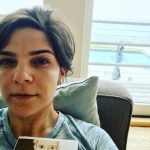 Lauren Apfel is co-founder and executive editor of Motherwell. Connect with her on Facebook, Twitter and Instagram.
Lauren Apfel is co-founder and executive editor of Motherwell. Connect with her on Facebook, Twitter and Instagram.
 Amanda Magee lives in Upstate New York where she owns an advertising agency and is raising three daughters with her husband.
Amanda Magee lives in Upstate New York where she owns an advertising agency and is raising three daughters with her husband.
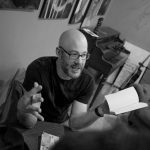 David Olimpio believes that we create ourselves through the stories we tell, and that is what he aims to do every day. He is the author of THIS IS NOT A CONFESSION (Awst Press, 2016), the Publisher and Editor-in-Chief of Atticus Review, and serves on the board of Arts By the People. His writing appears in Under the Gum Tree, Cosmonauts Avenue, Barrelhouse, The Austin Review and others. You can find him at davidolimpio.com. He Tweets and Instagrams as @notsolinear.
David Olimpio believes that we create ourselves through the stories we tell, and that is what he aims to do every day. He is the author of THIS IS NOT A CONFESSION (Awst Press, 2016), the Publisher and Editor-in-Chief of Atticus Review, and serves on the board of Arts By the People. His writing appears in Under the Gum Tree, Cosmonauts Avenue, Barrelhouse, The Austin Review and others. You can find him at davidolimpio.com. He Tweets and Instagrams as @notsolinear.
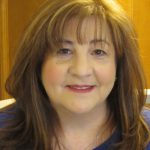 Lisa Romeo is the author of Starting with Goodbye: A Daughter’s Memoir of Love after Loss (University of Nevada Press, May 2018). Her work is listed in Best American Essays 2016, and has appeared in dozens of literary journals and mainstream media. Lisa teaches in the Bay Path University MFA, and works as a freelance editor and writing coach. A former equestrian journalist and public relations specialist, Lisa lives in New Jersey.
Lisa Romeo is the author of Starting with Goodbye: A Daughter’s Memoir of Love after Loss (University of Nevada Press, May 2018). Her work is listed in Best American Essays 2016, and has appeared in dozens of literary journals and mainstream media. Lisa teaches in the Bay Path University MFA, and works as a freelance editor and writing coach. A former equestrian journalist and public relations specialist, Lisa lives in New Jersey.
 Nina Badzin is a freelance writer and a co-founder of The Twin Cities Writing Studio. She lives in Minneapolis with her husband and four children. Find her at ninabadzin.com where she reviews 50 books a year and on Twitter @NinaBadzin.
Nina Badzin is a freelance writer and a co-founder of The Twin Cities Writing Studio. She lives in Minneapolis with her husband and four children. Find her at ninabadzin.com where she reviews 50 books a year and on Twitter @NinaBadzin.
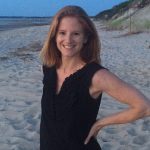 Lindsey Mead is a wife, mother, writer, and headhunter who lives outside of Boston with her husband, daughter, and son. She graduated from Princeton with a degree in English and received an MBA from Harvard Business School. Lindsey’s writing has been published in a variety of print and on-line sources, her first book will be released in 2019 by Simon & Schuster, and she writes regularly at A Design So Vast. You can find Lindsey on Twitter at @lemead and on Instagram at lemead.
Lindsey Mead is a wife, mother, writer, and headhunter who lives outside of Boston with her husband, daughter, and son. She graduated from Princeton with a degree in English and received an MBA from Harvard Business School. Lindsey’s writing has been published in a variety of print and on-line sources, her first book will be released in 2019 by Simon & Schuster, and she writes regularly at A Design So Vast. You can find Lindsey on Twitter at @lemead and on Instagram at lemead.
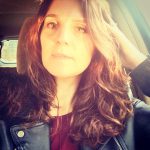 Kate Gehan‘s writing has appeared in McSweeny’s Internet Tendency, Literary Mama, The Stockholm Review, Sundog Lit, Split Lip Magazine, People Holding, Whiskey Paper, (b)OINK and others. She is nonfiction editor at Pithead Chapel. Find her work at www.kategehan.wordpress.com
Kate Gehan‘s writing has appeared in McSweeny’s Internet Tendency, Literary Mama, The Stockholm Review, Sundog Lit, Split Lip Magazine, People Holding, Whiskey Paper, (b)OINK and others. She is nonfiction editor at Pithead Chapel. Find her work at www.kategehan.wordpress.com



